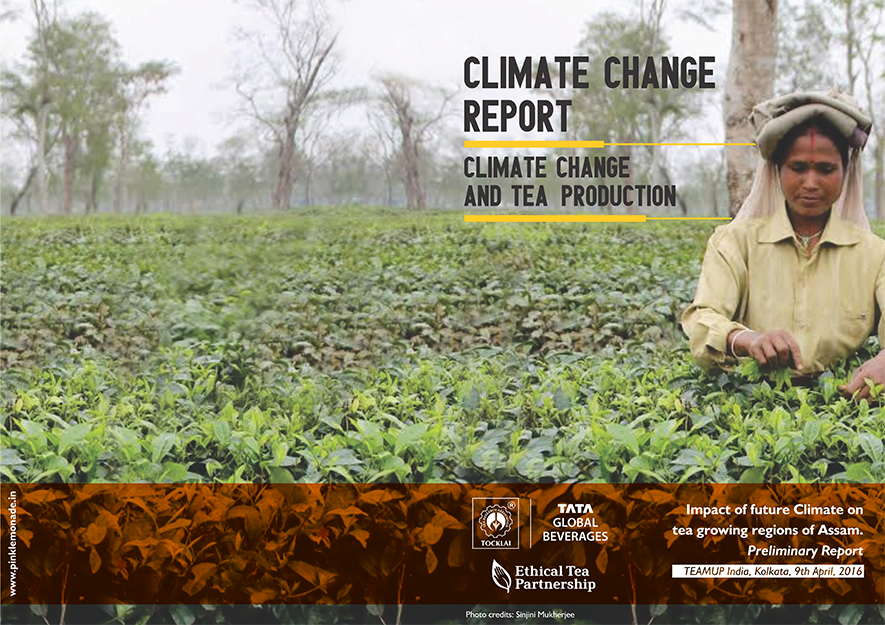Tata Global Beverages commissions study on the impact of climate change on tea production.

Focuses on future sustainability of tea in Assam by 2050.
Partners with Tea Research Association India and Ethical Tea Partnership for the study
Tata Global Beverages, as part of its association with Ethical Tea Partnership (ETP), has commissioned the Tea Research Association (TRA) to identify and capture indicators of climatic changes that will impact India’s tea growing regions in the next 50 years. Supported by Tata Global Beverages Ltd. (TGBL), Tea Research Association, India and Ethical Tea Partnership have joined hands to put together the study titled “The Impact of Climate Change on Tea Growing Regions of Assam, India”. This project will cover predictions on climate change impact in the four tea production regions of Assam: Upper Assam, South Bank, North Bank and Cachar. These predictions are being made with the help of existing baseline data along with the most recent United Nation’s Intergovernmental Panel on Climate Change (IPCC) Fifth Assessment Report to create likely scenarios of tea growth in the four regions by 2050.
The report aims at identifying those areas that will continue to remain suitable for tea cultivation, those areas that will require adaptation and those that may become unsuitable and hence, may need to switch from tea to other crops. According to Dr. R.M.Bhagat, Deputy Director of Tea Research Association (TRA) and the author of the report, the preliminary findings indicate that south bank region, parts of Upper Assam and Cachar are the suitable regions whereas north bank region is comparatively less suitable. However, the predicted probability distribution of tea in the future shows that by 2050, the suitability of these tea growing regions of Assam will reduce drastically, and tea production could shift towards comparatively higher and cooler altitude areas. The initial findings also identify major new opportunities for the industry such as new areas for tea cultivation due to shift in suitability of growing regions.
Commenting on the initiative, Mr. Ajoy Misra, MD & CEO, Tata Global Beverages said, “Tea growing regions are likely to be severely susceptible by 2050 to changing climate, if adaptation measures for combating the change are not adopted. As an industry, we need to collectively take corrective steps to ensure that that we conserve energy and other scarce resources. A fast growing economy like India will need to focus on being an economic powerhouse and also a global environmental leader.”
“Tata Global Beverages is the world’s 2nd largest tea company& this initiative will help us contribute to a sustainable and progressive future for the tea industry that also creates a positive societal impact” added Mr. Misra.
The preliminary results of the climate modelling presented in this report were discussed with the stakeholders during a workshop held in Kolkata. The first phase of the project will map the suitability of the tea growing regions using multiple high resolution mathematical climate modeling such as Global Circulation Models (GCMs).
Tea is an important global agricultural commodity, both commercially and culturally. The productivity of tea cultivation depends on specific enviro-climatic conditions. Quantifying regional climate characteristics enables more effective decision-making on climate change adaptation, water resources management and other sustainable solutions for safeguarding future tea crop production.
In its next phase, the TGB-ETP project will focus on further research and simulation studies on tea growing regions in Assam using multiple variables. There will be an increased emphasis on water resource management at watershed level. The research will also aim at including the whole of North East India including North Bengal to locate new areas of tea suitability.





